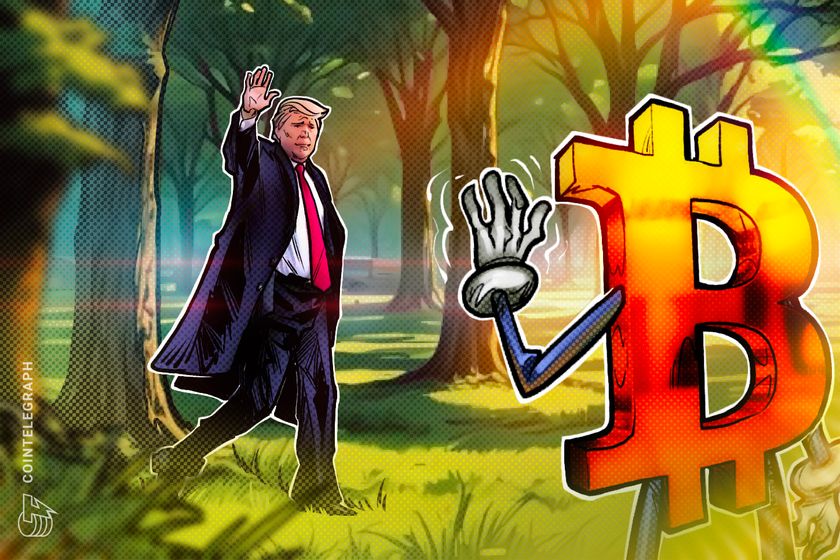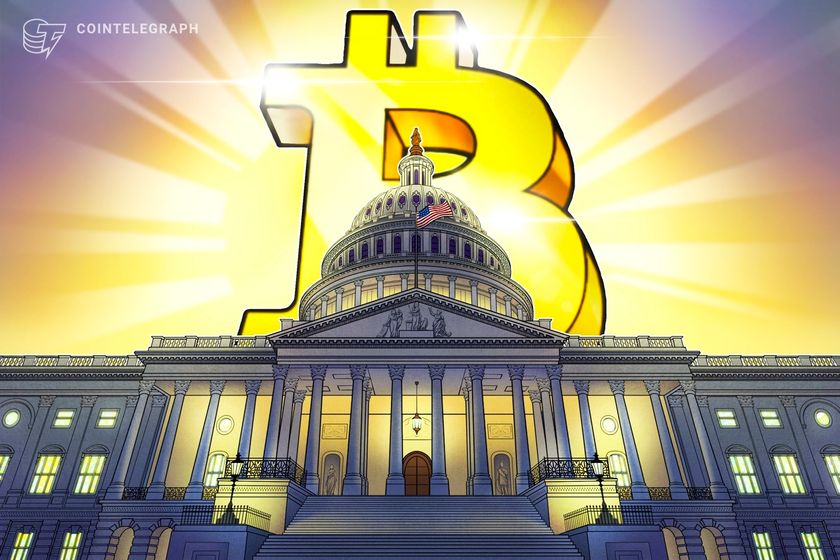Bloomberg ETF analyst Eric Balchunas says his “best guess as of now” is that spot Ether ETFs will begin trading in the United States before July 2.
Trump supports bill to buy 1 million BTC — Senator Lummis
US President Donald Trump supports the BITCOIN Act and has a team of experts in the White House working to roll out landmark digital asset legislation in the coming weeks, according to Wyoming Senator Cynthia Lummis. Speaking at the Bitcoin 2025 conference in Las Vegas, Nevada, Lummis said she is bringing the BITCOIN ACT to the “attention of the American people and the world,” adding that, “President Trump supports the bill.”In March, Lummis reintroduced the BITCOIN Act — landmark legislation that directs the US government to acquire 1 million Bitcoin (BTC) over five years. The acquisitions would be financed using existing funds within the Federal Reserve System and the Treasury Department. As Cointelegraph reported, the Trump administration has reiterated the need to use “budget-neutral ways” to acquire Bitcoin without burdening taxpayers.Source: CryptoGoosAt the Bitcoin Conference, Lummis said the Trump administration has a team working on “digital asset issues,” including legislation on stablecoins, market structure and the Bitcoin Strategic Reserve.“They will probably roll out in that order,” she said.“The Senate Banking Committee has passed the stablecoin bill out of committee,” said Lummis, adding: “We’re getting close to being ready to have it on the floor. We’ve worked for untold hours with the minority party to satisfy them, and we should be voting on it the week before we get back from this break.”Related: Senator Lummis’ new BITCOIN Act allows US reserve to exceed 1M BitcoinGENIUS Act on stablecoins is “going to pass,” says White House crypto czarThe White House seems to be in alignment with Senator Lummis. Last week, Trump’s top crypto adviser, David Sacks, said the GENIUS stablecoin bill is “going to pass” the Senate with bipartisan support after clearing a key procedural vote on May 19.On May 19, the Senate voted 66 to 32 to advance debate on the GENIUS Bill. Source: US SenateGENIUS refers to the Guiding and Establishing National Innovation for US Stablecoins Act, possibly the most comprehensive federal push to establish a legal framework for dollar-pegged stablecoins.Stablecoins have become one of the most prominent use cases for blockchain technology, with some industry advocates arguing that they could help extend the US dollar’s dominance as the global reserve currency.Collateralized, dollar-backed stablecoins like Tether’s USDt (USDT) and Circle’s USDC (USDC) account for more than 85% of the $250 billion market, according to CoinMarketCap.Related: Former CFTC chair criticizes STABLE Act amid calls for urgent regulatory clarity




